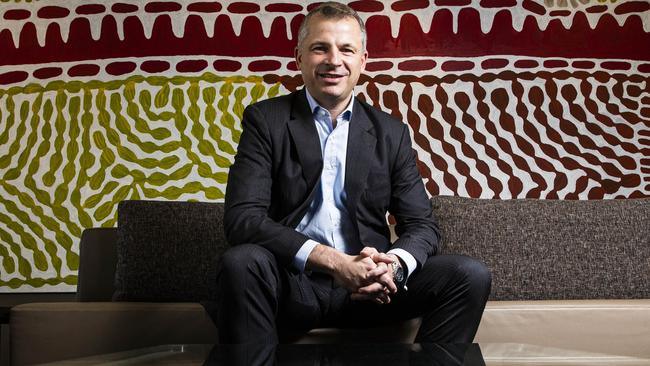Workers losing the global touch after Covid-19 lockdowns
Remote working and two-dimensional Zoom interactions have increased ‘localism’ according to Ashurst global chief Paul Jenkins.

Lockdowns and remote work have led to an increase in employees thinking locally rather than globally – and it’s not good for business, according to Paul Jenkins, the global CEO of international legal and professional services firm Ashurst.
He says the mindset shift away from “globalism” to “localism” is unsurprising given companies had to move to devolved leadership during the pandemic with people working from home and operating more locally. And while Zoom had been a great asset, its “two-dimensional” quality had added to the tendency for people to think more locally, he said.
Post-Covid, the most successful companies would be those able to break down the local mindsets so staff once again thought more broadly about the connections in their work.
“The benefit of being a global firm with 29 offices (around the world) is that we are reliant on how people connect with others,” he said. “It is about those linkages.”
Mr Jenkins, like most Australian CEOs with a global writ, was grounded during the pandemic, but is spending November in London to once again connect with staff face-to-face. It’s his first trip there since March last year.
From London, he said that while the city is about six months ahead of Australia in the Covid cycle, people are responding slowly to the “new normal” in terms of returning to the office.
“People are trying to snap back but you realise they are not going to snap back to what it was,” he said. “It’s about creating a new vision for the workplace … and the most successful organisations are those that don’t snap back but instead create a new vision.”
The long commute – up to 90 minutes – faced by many London workers meant there had to be a good reason for them to be in the office.
“If they come in and see their colleagues are not in the office they think is it just as easy for me to do this at home,” he said.
Mr Jenkins said Ashurst wanted to ensure its significant real estate was used, but realised space would have to be repurposed. with a focus on using offices for collaboration; client meetings; and coaching or training. It has suggested staff spend about 60 per cent of their time in the office but is leaving detailed arrangements of the hybrid system to team leaders.
The firm has cut its real estate portfolio by 11 per cent in the past two years and is aiming for a 20 per reduction but Mr Jenkins believes it could be more.
He said attitudes to working in the office differed across cultures and countries and would influence how Ashurst managed its real estate.
“If you look at our Asian offices and some of the larger centres on the continent … people live close to the office in apartments and prefer not to be home working on the kitchen bench, and want to come back to the office,” he said.
“We have to give people autonomy and respect and say (working from home) has worked well (for many).”
It was unrealistic to mandate five days in the office but there were benefits in face-to-face work.
“You can achieve a lot through Zoom and digital communication but you need the personal connection as well,” Mr Jenkins said. “It can get too transactional and a bit too two-dimensional compared with sitting down in your room, or over lunch, when people will open up to you.”
He said Covid had provided an opportunity to do things differently, including hiring from outside the primary centres during a very tight labour market. In the UK Ashurst has begun recruiting in Manchester and Birmingham, for example.




To join the conversation, please log in. Don't have an account? Register
Join the conversation, you are commenting as Logout